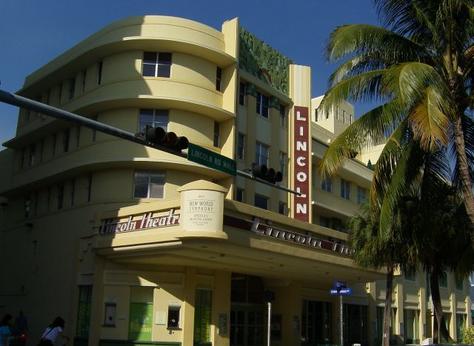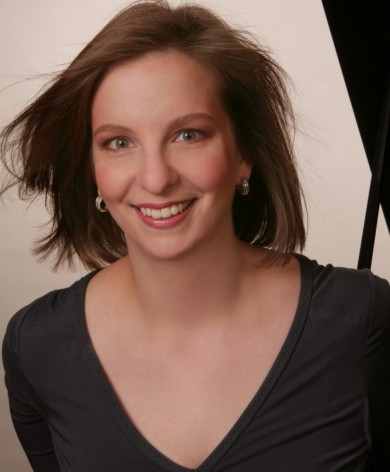New World Symphony bids farewell to the Lincoln Theatre in final concerts

With boxes of files labeled and stacked up in the Lincoln Theatre’s administrative offices, the New World Symphony on Saturday played the first of two final concerts before moving to its high-tech, 748-seat new campus.
“As of Monday, we are in business over there,” said Howard Herring, the orchestra’s chief executive officer, in an intermission interview. “It’s been ten years in the making. It’s a new beginning.”
The Lincoln Theatre, a former movie venue that has been the New World’s home for most of its first two decades, has been sold to developers who plan to gut it and turn it into a retail complex. There were some regrets among audience members, who had heard a procession of brilliant guest soloists and conductors, attended concerts of both traditional repertoire and contemporary works explained in person by the composers, and watched the young orchestra members’ careers launched from the old Miami Beach theater’s stage.
“I’m going to miss this charming little theater,” said longtime subscriber Audrey Manne. “It’s so pleasant and intimate.”
The orchestra, conducted by David Robertson, music director of the Saint Louis Symphony, was in excellent form Saturday, turning in a fine performance for its final concerts.
The evening opened with Schuman’s Manfred Overture, led by the orchestra’s conducting fellow, Teddy Abrams. He drew great tension from the orchestra in the opening bars, leading an energetic, hard-driving performance, with particular virtuosity shown by the orchestra’s violins.
In Leonard Bernstein’s The Age of Anxiety (Symphony No. 2), Orli Shaham, the conductor’s wife was the soloist. With a superlative performance by the Israeli-born, American pianist (sister of violinist Gil Shaham), and a responsive orchestra, this performance bested the Cleveland Orchestra’s account of the same work last season.
The symphony is a quasi-piano concerto inspired by the W.H. Auden poem of the same name that tells the story of four people who meet in a bar and fall into conversation about the human condition.

Orli Shaham. Photo: Christian Steiner
Shaham’s playing was supple and smooth, but with ample, restless nervous energy in the Seven Ages variations. In the Dirge, Robertson led the orchestra in declamations that were grand and sweeping but never raucous. In the jazzy Masque section, Shaham started cool, but as the tempo and volume picked up, her playing was put across with that much more fizzing energy.
Prokofiev’s Fifth Symphony ended the program. Robertson took a measured approach that paid dividends through the performance, allowing the opening theme to roll out in a deliberate manner that sounded almost plodding. But this allowed the power of the movement to build slowly and inexorably, leading to a tremendous climax at the end. When the high-volume ending of the first movement didn’t bring the usual smattering of premature applause, Robertson turned to the audience and said, “You showed such remarkable self-restraint.”
The bouncy second movement was characterized by fine performances by violins in the rapid passages and evocative, rich-toned playing by winds in the second theme. The dark third movement was a study in pulsing, ominous tones. The last movement was a surging, virtuoso performance by the orchestra, providing a fitting end to its tenure at the Lincoln Road venue.
As a final farewell to the Lincoln Theatre, the orchestra struck up Auld Lang Syne, with a screen above the stage carrying the words, as well as photographs of the orchestra’s two decades at the theater.
The program wil be repeated 2 p.m. Sunday. nws.edu. 305-673-3331.
Posted in Uncategorized
Leave a Comment
Sun Dec 19, 2010
at 1:31 pm
No Comments
